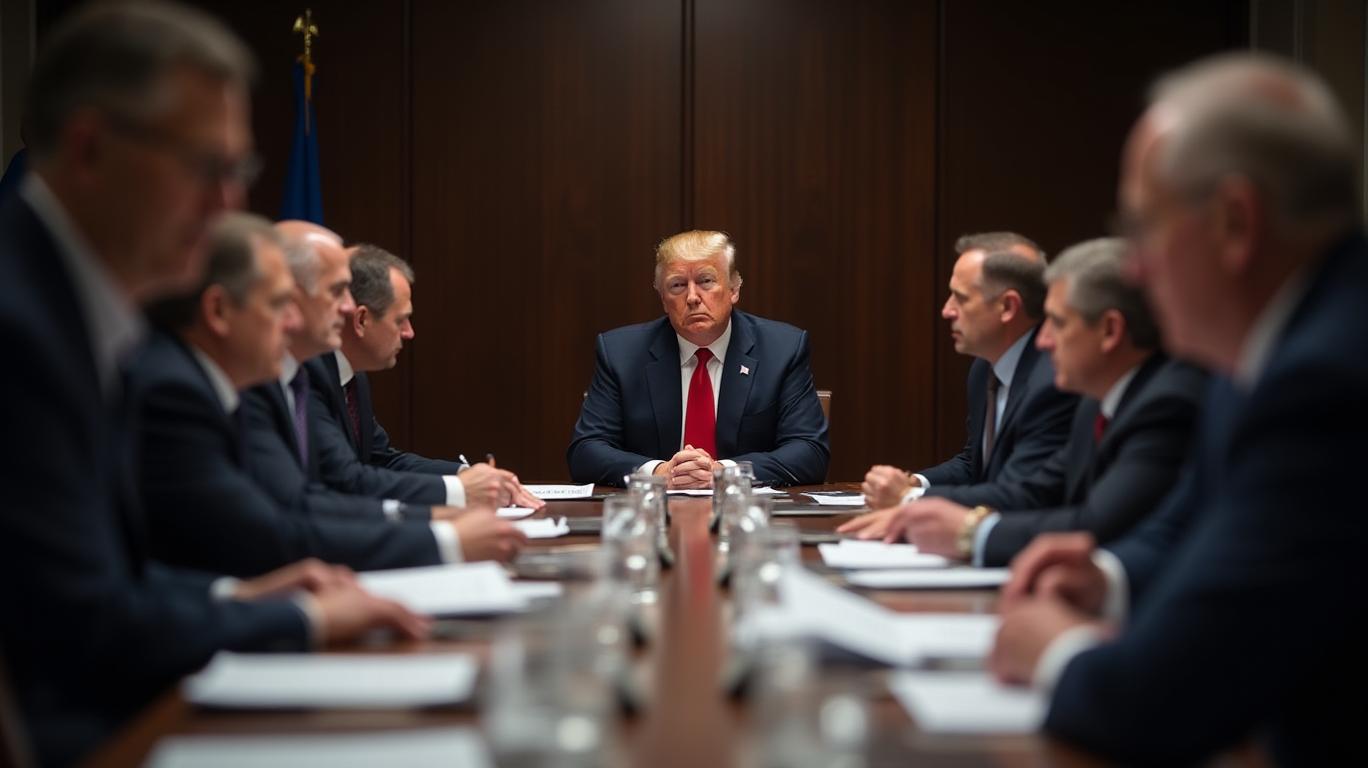EU Vows Firm Response to Trump's 25% Auto Tariffs, Open to Compromise
German Chancellor Olaf Scholz has declared that the European Union will respond firmly to the tariffs announced by former U.S. President Donald Trump. In his statement, Scholz emphasized that while the EU is prepared to take a strong stance, it remains open to the possibility of compromise. This dual approach underscores the EU's commitment to protecting its economic interests while also seeking a diplomatic resolution to the trade dispute.
Scholz's remarks come in response to Trump's proposed tariffs, which include a 25% levy on auto imports. The chancellor's pledge of a "clear and decisive" response from the EU indicates a willingness to defend European industries against what is perceived as unfair trade practices. However, Scholz's openness to compromise suggests that the EU is not seeking an escalation of tensions but rather a negotiated settlement that benefits both parties.
The EU's response to the U.S. tariffs is part of a broader strategy to safeguard its economic interests in the face of protectionist policies. By taking a firm stance, the EU aims to send a message to the U.S. that it will not tolerate actions that could harm its industries and workers. At the same time, the EU's willingness to engage in compromise reflects its recognition of the importance of maintaining strong trade relations with the U.S.
Scholz's comments highlight the delicate balance that the EU must strike in its dealings with the U.S. On one hand, it must protect its economic interests and defend its industries against unfair trade practices. On the other hand, it must also seek to maintain strong trade relations with the U.S., which is one of its largest trading partners. By taking a firm but flexible approach, the EU aims to achieve both of these objectives.
The EU's response to the U.S. tariffs is also a reflection of its broader approach to trade policy. The EU has long been a proponent of free and fair trade, and it has consistently advocated for the use of multilateral institutions to resolve trade disputes. However, in the face of protectionist policies from the U.S., the EU has been forced to take a more assertive stance in defending its economic interests.
In conclusion, Scholz's remarks underscore the EU's commitment to protecting its economic interests while also seeking a diplomatic resolution to the trade dispute with the U.S. By taking a firm but flexible approach, the EU aims to achieve both of these objectives and maintain strong trade relations with the U.S. 
Quickly understand the history and background of various well-known coins
Latest Articles
Stay ahead of the market.
Get curated U.S. market news, insights and key dates delivered to your inbox.



Comments
No comments yet